Helen Hunt, 60, Stuns During Her Latest Appearance, and Her Lips Become the Center of Attention

Poison dart frogs are one of the most toxic species on our planet. They come in a range of bright colors: blue, green, yellow, orange, and red. And that’s not just to show-off! It’s a kinda message to all the predators that might want to come after them — “I’m toxic so you better stay away and don’t try to eat me!”. The golden poison dart frog, for example, has so much poison it could finish 20,000 mice.
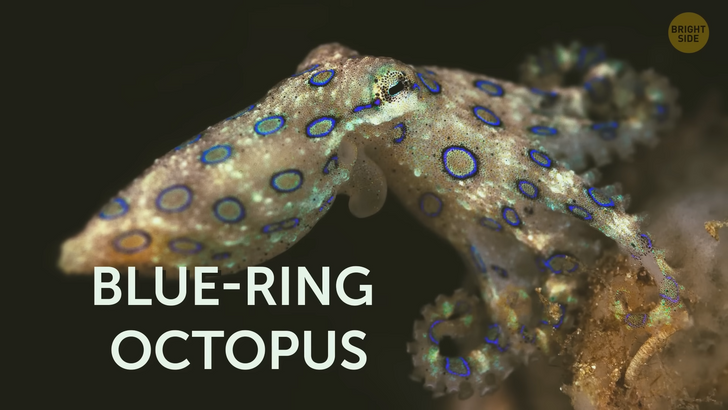
Vibrant colors in nature are generally a sign it’s better to stay away from that animal because it’s warning you’re looking at something you definitely don’t wanna eat. Check a blue-ring octopus, another extremely venomous creature. Unlike poison dart frogs or, for example, velvet ants whose bright colors you see right away, this octopus shows its blue rings only when it feels threatened.
With over 300 pounds and 10 feet In length, Komodo dragons are the heaviest lizards on our planet. They will go after almost anything that comes their way including pigs, deer, smaller dragons, and even some challenging creatures like big water buffalo. They camouflage and patiently wait for their prey to come closer, lying in the grass.
Saltwater crocodiles. Their attacks are more frequent than those of sharks! They have 3.5 times stronger bite than a lion and 25 times stronger bite than people do. One more superpower: these guys can literally launch their bodies out of water, and they do that with their tails.
Hippos seem quite relaxed as they chill in the water, but they’re actually pretty aggressive. They attack humans even more than leopards and lions.
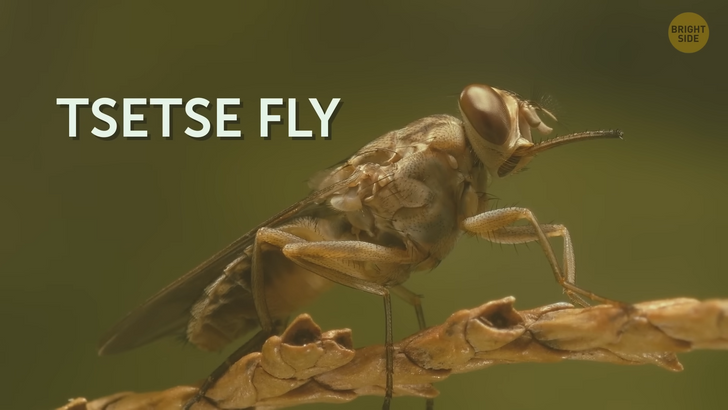
This guy is small, but it can be as threatening as a huge hippo! Meet the tsetse fly. It lives in sub-Saharan Africa and travelers that love spending their time outdoors or in game parks should be careful about these insects. It’s important to get the right treatment as soon as possible if it bites you.
Puss caterpillars look all innocent and fluffy, but you’d better avoid touching them. They’re venomous and these wig-like hairs you see are actually spines that can cause multiple issues if you touch them. Ouch.
Vespa Mandarinia mostly build their nests underground, so it’s trickier to find them. Their sting is like someone pierced you with a hot metal pin. The stinger is long enough even to go through the standard protective beekeeper’s gear.
The Reef Stonefish is the world’s most venomous fish. There are 13 stout spines in its dorsal fin and that’s how this animal injects its highly toxic venom.
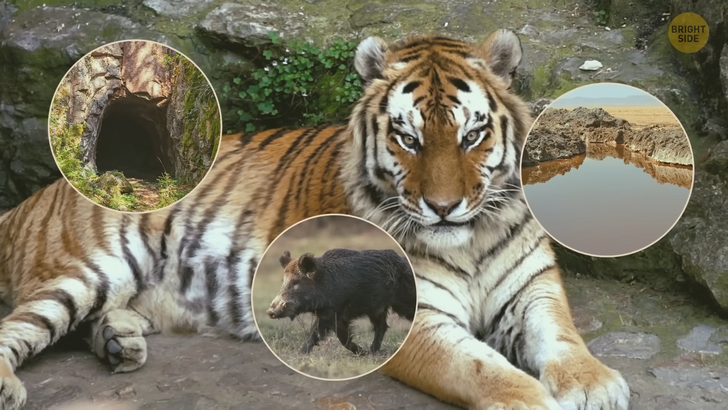
Lions. They live mostly in Africa and can eat a quarter of their body weight — about 88 pounds — in a single meal. They mostly hunt at night and during storms because the wind and noise make it harder for their prey to hear and see them. Why hunt if they just go and participate in some burger eating contest?..
Tigers mostly inhabit Asia. They’re able to survive in different conditions since you can find them in various areas from mountains to rainforests. As long as they have enough water, food, and cover, they can adapt to anything. Food can sometimes be a problem since they eat up to 60 big animals per year with smaller ones as snacks in between. Fun fact — their skin is covered in stripes too, not just their fur.
A bit of good news here: wolves aren’t really into eating humans. Still, sometimes they do go after people. They mostly attack when they don’t have enough food or when they lose their habitat.
Sharks have a bad reputation, but they mostly spend their time away from humans, catching smaller fish and other marine animals. Still, they’ll defend themselves if you come to their area, and they feel threatened — and in that case, their serrated teeth certainly don’t look too peaceful.
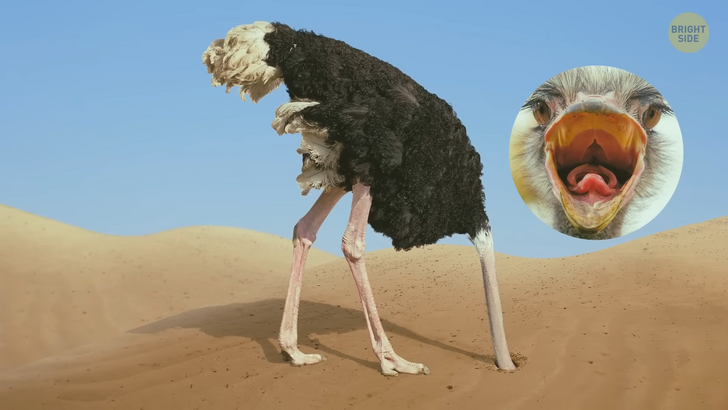
Ostrich may not belong to that list at first sight, but when it’s cornered, this animal is perfectly capable of taking down big predators such as wolves and lions. Yeah, sometimes they can be brave, and in reality, they never stick their head in the sand when frightened!
We can’t forget to mention brown or grizzly bears which are considered to be way more aggressive than other bears. It’s 3.5 times more likely something bad will happen if you encounter them than polar bears. They’re also 21 times more dangerous than black bears. And yet, brown bears are the most widespread kind of bears across the globe.
When it comes to snakes, saw-scaled viper is definitely one of those you need to be careful with the most because the consequences of its bite are statistically quite sad, to say the least. It has enough venom that even its weakest bite could finish two people. Not just saw-scaled viper — there are multiple snakes you need to stay away from.
Meet Philippine Cobra — it lurks in forested areas, dense jungles, low-lying plains, and open fields. It especially likes areas near water — and can spit its venom up to 9.8 feet away.
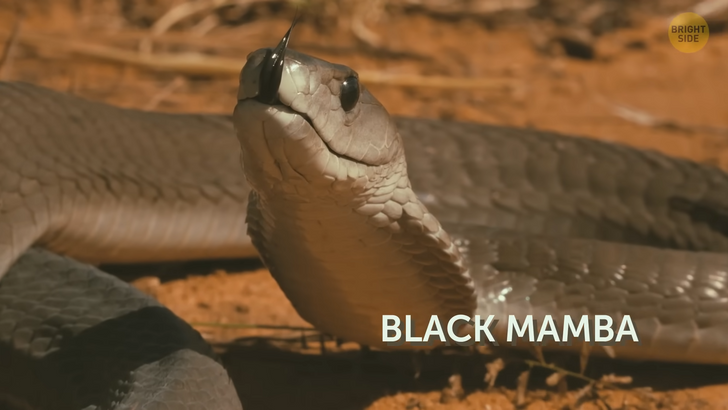
Black mamba too. Very venomous, kinda nervous, and when it sees you as a threat, extremely aggressive. It’s among the world’s fastest snakes since it can move at speeds of up to 12.5 mph.
Australian Box Jellyfish is the most venomous marine animal in the world. It has tentacles covered in small darts with venom, and they can grow up to 10 feet long.
Seeing even a small random spider in your home can be unpleasant — and picture if it was a goliath birdeater instead, the largest spider in the world. And also one of the creepiest. You’ll mostly find them spending their time in burrows with the entrances covered with the web. Luckily, their venom is not THAT bad for humans. It’s like a wasp stinging you. Bad news for insects: you guys should be careful! This spider is a real danger to you.
Platypus looks cute and harmless. But despite their funny appearance, they’re one of the most dangerous animals in Australia. They have spurs located on their hind legs and each of them is connected to a crural gland by a duct. And this gland creates a complex mixture of hundreds of toxins. Ugh! They have two layers of fur, for waterproofing and insulation. With their fur, platypuses trap a layer of air right next to their skin, so they can remain dry when they’re underwater looking for food — which is about 12 hours every day.
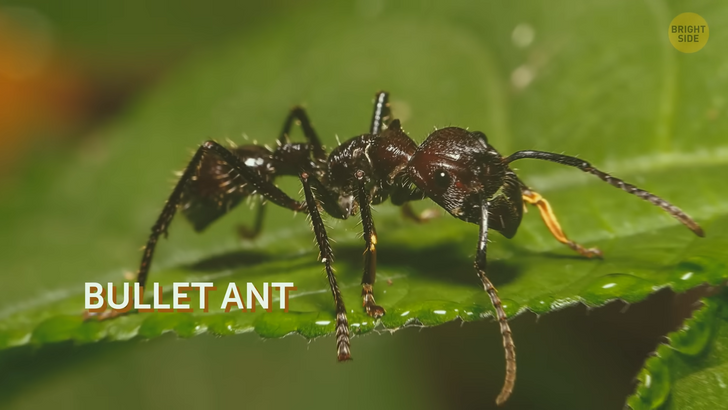
One of the stings you’ll definitely feel the most is from the Bullet Ant. They’re small, and their stinger is only up to 0.11 inches long, but it can still leave you with several hours of burning sensation.
Pufferfish are poor swimmers, so they’re more likely to end up as lunch for larger fish. But when they sense danger, they ingest big amounts of water, together with air, so their body inflates like a balloon. They can puff up to even 2–3 times their regular size. A single puffer fish has enough toxin to finish 30 humans.
The African buffalo is the only species of wild cow you’ll find in Africa. You can recognize it for its heavy ridged horns, and this, in combination with its massive size and aggressive nature, makes them very dangerous for whoever stands in its way.
Elephants will respect your space most of the time, but only if you respect theirs. They can feel threatened by, let’s say, a group of tourists that come too close and disrupt their personal space. In that case, they’ll defend themselves and be very angry, which isn’t such a nice scene.
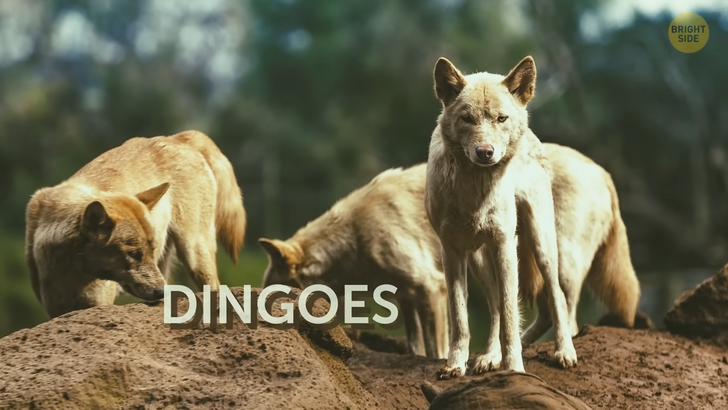
Wild dogs can be pretty dangerous, like dingoes in Australia. They can either live alone or move in packs of up to ten animals — which can be especially tricky for their prey when the entire pack is after it. They can cross great distances and communicate with each other howling like wolves.
A star-nosed mole is certainly one of the weirdest-looking creatures you’ll come across. In some way, it looks like someone replaced its head with a very small octopus. They’re not dangerous to humans in the way some venomous creatures or large predators are, but they can cause a lot of damage in your garden.











